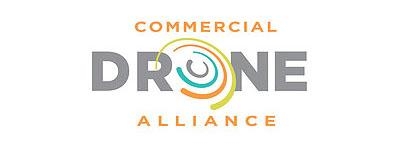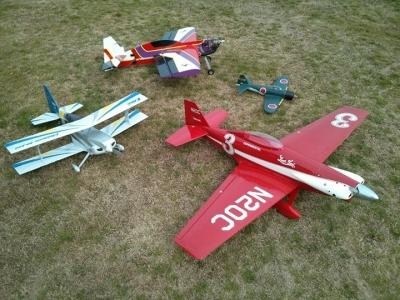AMA Defends The Exemption For Model Aircraft In The FAA Modernization And Reform Act Of 2012
The Commercial Drone Alliance, an independent 501c6 non-profit led by key figures of the commercial drone industry, is calling for Congress to repeal Section 336 of the FAA Modernization and Reform Act (FMRA) of 2012. Legislation is necessary now to allow the FAA to properly regulate hobbyist drone operations under a revised Part 107 of the Federal Aviation Regulations.

Since the implementation of the FAA’s Part 107 in 2016, which broadly authorized commercial drone operations in the U.S., drone use has been growing at an exponential rate. Today, drones enhance disaster response, infrastructure inspection, and newsgathering capabilities, among a host of other tasks. Technology lets drones facilitate communications, spray crops, deliver packages and provide security, all within the same airspace and at the same time as helicopters and other manned aircraft, over people and structures, and side by side with hobbyist drones.
Basic ‘rules of the road’ are needed to manage all this new air traffic. That is why the Commercial Drone Alliance is calling on Congress to repeal Section 336 of the FAA Modernization and Reform Act of 2012, and include new language in the 2018 FAA Reauthorization Act to enable the FAA to regulate UAS and the National Airspace in a common sense way.
Section 336 of the 2012 FMRA currently prohibits the FAA from regulating qualifying model aircraft. This exemption has been misinterpreted and abused—giving all model aircraft users, including those not participating as part of a Community Based Organization as required under the law, the mistaken impression that they are flying legally.
The sheer number of hobbyist aircraft taking to the sky now makes exempting model aircraft from regulation nonsensical. As of December 31, 2017, more than 873,000 hobbyist owners had registered with the FAA, which according to estimates, amounts to more than 1.1 million drones. Over the next five years, the FAA predicts this number will more than double to 2.4 million units.
“We understand why model aircraft proponents want to remain exempt, as they have been flying safely for decades. However, times have changed, and hobbyists are no longer flying alone,” said Lisa Ellman, Co-executive Director, Commercial Drone Alliance.
"Technology has improved. To promote innovation and the budding commercial drone industry, we need to enable the FAA to craft some common sense rules around remote identification and more,” said Gretchen West, Co-executive Director of the Commercial Drone Alliance
An approach giving preferential treatment to hobbyists has clear and adverse implications for the safety and efficiency of the National Airspace System, public safety, and the efficacy of future Unmanned Aircraft Systems Traffic Management (UTM) systems. For this new drone economy to truly take off for society’s benefit, all UAS pilots need to abide by some low cost ‘rules of the road.’ It is critical to consider the benefits of commercial drone integration, in addition to safety and security, as Congress considers the regulation of hobbyist drones. The future of the commercial drone industry in the U.S. depends on it, the Alliance said.
In a response, the Academy of Model Aeronautics (AMA) defended Section 336, saying eliminating the language would mean more work for an already-overburdened FAA.

“AMA’s number one priority is the safety of our nation’s skies. Through Section 336, AMA safely manages 200,000 members – as the organization has done for more than eighty years – freeing up scarce FAA resources to advance commercial drone regulations and other priorities. At the same time, AMA lends its safety expertise to the broader drone community through efforts such as Know Before You Fly," wrote Chad Budreau, Public Relations & Government Affairs Director for the Academy of Model Aeronautics (AMA).
“Even with AMA managing a portion of the recreational community and funding broader educational efforts, the FAA is still under-resourced to handle the growing surge in commercial drones, Part 107 waiver requests and future rulemakings. Eliminating Section 336 will exacerbate the demand on the agency’s resources, which may have implications for the commercial drone industry and the safety of our skies. Public-private partnerships with experienced community-based organizations like AMA, which are facilitated by Section 336, can be helpful in alleviating strain on the FAA and enhance safety.
“Furthermore, model aviation enthusiasts have been the cradle of innovation for both the manned and unmanned communities for decades. Many mistakenly believe drones are a recent innovation. To the contrary – the AMA community has helped to develop and advance the platform since the 1930s. Even today, as drone technology continues to improve, modelers are dreaming up new ways to apply and use this technology every day. Imagine a world where a young Steve Jobs or Henry Ford were restricted from tinkering in their garage. A repeal of Section 336 would be a devastating blow to innovation.
“We recognize some tweaks to Section 336 may be needed to clarify who the provision does and does not cover. We also recognize that remote identification requirements make sense at an appropriate threshold of weight and capability, such as for more sophisticated drones. That’s why we are actively working with Congress, the manned aviation community and the UAS industry on policy solutions to these challenges within the framework of Section 336.
“While we support commercial drone endeavors, Congress should not allow for-profit companies to dictate legislation abolishing a segment of the hobby with a strong, eighty-plus year safety record. We need to advance drone deliveries in such a way that manned aircraft, commercial drone operators and hobbyists all operate safely and harmoniously together, as manned aviation and model aviation have done for decades. No one group has a greater claim to the nation’s airspace than any other.”
(Image from file)
 ANN's Daily Aero-Term (04.24.24): Runway Lead-in Light System
ANN's Daily Aero-Term (04.24.24): Runway Lead-in Light System ANN's Daily Aero-Linx (04.24.24)
ANN's Daily Aero-Linx (04.24.24) Aero-FAQ: Dave Juwel's Aviation Marketing Stories -- ITBOA BNITBOB
Aero-FAQ: Dave Juwel's Aviation Marketing Stories -- ITBOA BNITBOB Classic Aero-TV: Best Seat in The House -- 'Inside' The AeroShell Aerobatic Team
Classic Aero-TV: Best Seat in The House -- 'Inside' The AeroShell Aerobatic Team Airborne Affordable Flyers 04.18.24: CarbonCub UL, Fisher, Affordable Flyer Expo
Airborne Affordable Flyers 04.18.24: CarbonCub UL, Fisher, Affordable Flyer Expo




